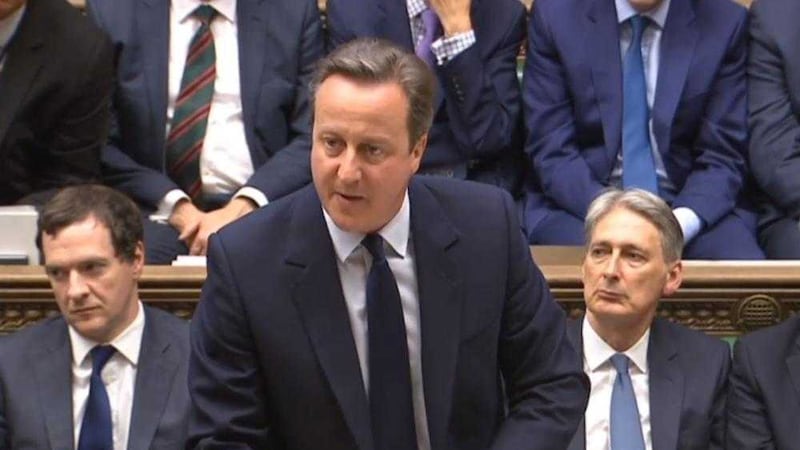Older readers may remember that episode in Dallas when Bobby Ewing returned from the dead after the script writers decided that all of the previous season—about twenty episodes or so—had been Pam’s dream and that none of the plot lines, twists, deaths, madness and trauma had actually happened. Bobby simply stepped out of the shower in the final episode of the 1985-86 season and the plot picked up where it left off a year earlier.
I reckon a lot of bankers, businessmen, politicians and EU leaders are quietly hoping that David Cameron is going to step out of his own shower in the next few days and that we’ll return to the Conservative Party’s 2015 general election manifesto, although without the pledge of a referendum. Personally, I’d quite like to go back to December 2005, with Cameron losing the leadership battle this time. He has been a truly awful Conservative leader, only winning because he was the candidate who most looked like and sounded like Tony Blair (in just the same way that Blair became Labour leader because he was their candidate most like Margaret Thatcher).
As a prime minister Cameron was dreadful and his time in office will be remembered as that of a man permanently on the run from Nigel Farage and Ukip. In his 2010 manifesto he made absurd pledges about reducing net immigration from about 300,000 to tens of thousands, just to try and outmanoeuvre Farage. Then in 2015, having realised that immigration had risen rather than fallen, he promised an in/out referendum on EU membership. During the referendum campaign he allowed Farage to steer the agenda (as did Johnson and Gove, too). And within hours of the result he had announced his resignation while Farage was lapping up the adulation.
Cameron’s problem—and I speak as someone who supported Leave and disagreed with him on his ‘politely’ racist approach to immigration, an approach that left him at the mercy of gold-plated racists from 2007 onwards—is that he rarely deployed passion to underpin his beliefs. During the UUP/Conservative link-up (UCUNF) he always underplayed his unionism in case it upset nationalists. Throughout the Scottish referendum he made it sound as if he wasn’t all that bothered if Scotland left: and his response to the narrow decision to stay, when he talked of the importance of a greater say for English voters in Westminster, merely fuelled the new English nationalism which became a key factor in his EU defeat. And at no time during the referendum did he make a stirring defence of the supposed values and benefits of EU membership.
He has no one to blame but himself. Last May he became the first Conservative leader to deliver a Conservative majority since 1992, yet within 13 months he was announcing his resignation after the biggest, most crucial defeat inflicted upon a government since 1945. Irrespective of the failings of the Leave camp in terms of knowing what to do next, it was clear within hours that Cameron’s own government hadn’t prepared for defeat. He had no Plan B. His Chancellor had no Plan B. His government had no Plan B. So he took the easiest of all routes, dragged his poor wife out with him to a press conference in Downing Street and said he was stepping down.
That, of course, wasn’t the end of the farce. His likely successor will be Theresa May. She was in the Remain camp. She was loyal to him all the way through the campaign. She remained mostly silent: not because, as some of her supporters are suggesting, that she was always a ‘soft’ remain, but because she was obviously Cameron’s back-up plan if something went wrong. Neither her head nor her heart inclines towards Leave and it’s pretty clear that she—and the vast majority of MPs within Westminster—will be doing everything they can to keep the UK within the EU. Given that background how does anyone imagine that she could, let alone would, negotiate a genuine exit strategy? Which is, of course, why she doesn’t want a general election any time soon.
The only person in her way is Andrea Leadsom. But if you thought Cameron’s ‘Project Fear’ was rough stuff, just wait until Conservative Central Office turns its black-ops and manpower on her. They don’t want her to win. The Gove/Johnson machine is broken. She is almost unknown. The grassroots will be warned of the party splitting and losing power for a generation. This is going to be a long, unpleasant, bloody war of attrition. A war, moreover, that will continue if the Conservative Party and Parliament combine to try and overturn the will of the people.








